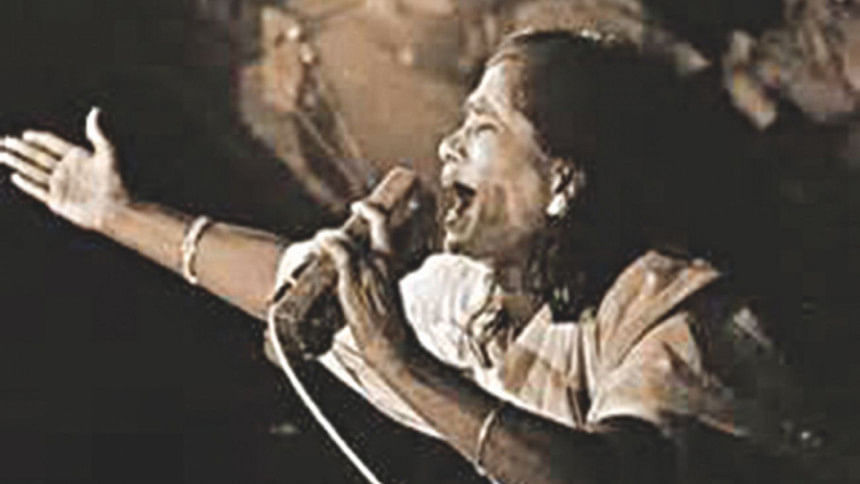Culture: The present site for struggle

We, the children of the language and cultural movement, of Bangladesh are heartbroken to witness, unfolding before our eyes, the phenomenon of an alien and mutant culture overtaking the very consciousness of our progeny, our nation. This is a consequence of a two-pronged assault.
On the one hand the new Empire is the 'market' seeking to subjugate the world in the interest of transnational capital. As Marxist historian K.N. Panikkar eloquently states, 'the implicit purpose of the 'market', transmitted through the cultural network, is the creation of a modern, read capitalist, taste and the making of an uncritical mind'. On the other hand, there is the growing inequity between the 'North' and the 'South', and the 'haves' and the 'have-nots'; generating anxiety and frustration for the multitudes unable to meet aspirations, created by the 'market culture', making it the ideal ground for the growth of religious radicalization, with its false goals of divine glory achieved through a culture of extremist retaliation.
Unfortunately, present times are post-ideological, where all encompassing ideologies seem to have apparently failed, generating a vacuum where cynicism reigns supreme. Posited on this is the uncritical mind, easily preyed on by forces of extremism, promising salvation, if not in the present world, surely thereafter.
The recent carnage in Dhaka is a wake-up call for the nation. It is an existential crisis that requires soul-searching to understand and standing up to.

Bangladesh has been an anomaly in a Muslim world, for having been able to thwart institutionalized fundamentalism and Wahabism. This has been possible only due to our historical cultural heritage, later strengthened by our Language and Cultural Movement. Unfortunately, at times we fail to appreciate the strength of our assimilative and plural cultural practices. We carry a couple of thousand years of heritage of compassionate thinking, promoted by our cultural practitioners - the bauls, the boyatis, and the folk performers - who constantly question irrational religious practices and beliefs. Not surprisingly, they still hold considerable sway in rural Bangladesh. Unfortunately, in our urban centers we have not only failed to recognize these strengths, but have also distanced ourselves from these rustic practices. We have given in to the 'market', and thus to the consequent anxiety and frustration.
A corollary to this has been the total collapse of our systems of education. Whereas education needs to be 'formative', building character, moral strength and incorporating compassion; we have turned it into a totally 'informative' pedagogy, which aims to create clones of uncritical business executives, dumping liberal arts and its affiliate studies as non-marketable assets.
A war is being fought. But, as Hardt and Negri state in their 2000's blockbuster 'Empire', the battlefield, like the internet, has no centre - it is a 'non-place'. This is a world where proxy wars are being fought, and culture is the site for the struggle for supremacy.
The neo-Marxist theorist Gramsci, while propounding his theory of cultural hegemony, clearly stated that in order to
create and maintain a new society, you also needed to create and maintain a new consciousness. The need of the day, therefore, is 'cultural intervention'. Going back to Panikkar, 'Cultural action is an intervention in daily life, directed to the transformation of social consciousness.' It is only through these interventions that we can build a life free from domination, both by the 'market' and it's retaliatory obscurantist religiosity.
Bangladesh is in a unique situation where cultural intervention is built into our plural cultural practices. It is time, now, to strengthen them, and bring them, not just into mainstream education, but also into mainstream discourse. Let us free ourselves from the domination of the structured world, and search beyond these imposed influences. As, our very own, Fakir Lalon sings, 'Devote yourself to knowing 'sahaj manush', your innate self, then may you find the truth in the present, within yourself'.
I am forever an optimist and agree totally with Hardt and Negri's sweeping assertion that we are a creative and enlightened species, and that our history is that of humanity's progress towards the seizure of power from those who exploit it. While globalization has created the space for transnational economic exploitation, it has also connected people. Together this menace can be fought
The author is a Dancer, Cultural Activist and Researcher.

 For all latest news, follow The Daily Star's Google News channel.
For all latest news, follow The Daily Star's Google News channel. 



Comments